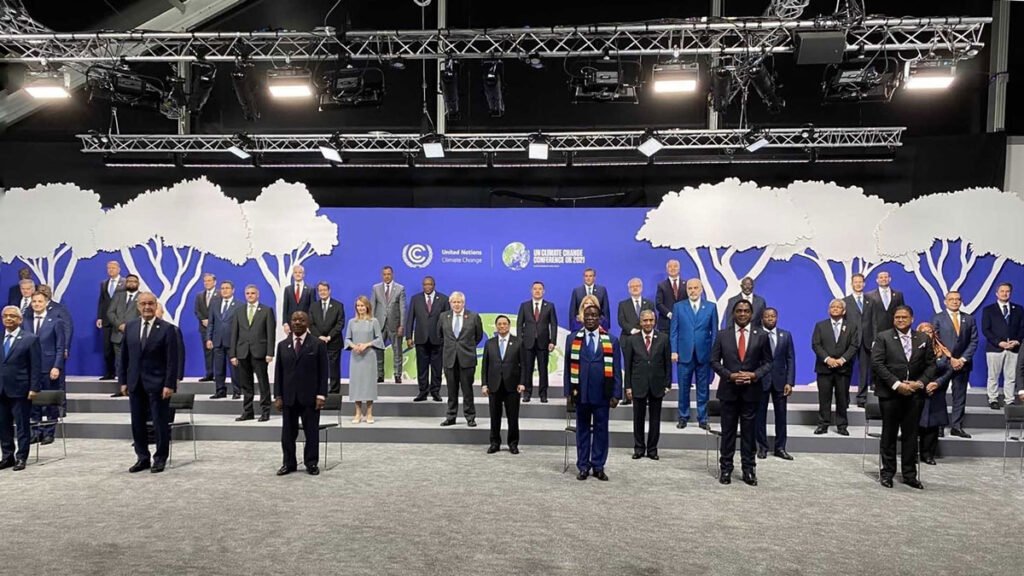The entire world is currently facing climate change. Many scenarios predicted to occur in future decades are seem to be happening on Earth- cloudburst, sea-level rise, tsunamis, flash flooding in Germany, western Europe, intense heat waves in US Pacific northwest, Siberia and British Columbia, wildfires in California, Australia, turkey and exacerbating concerns of megadroughts around the world, if the right measures in terms of sustainable approach are not taken in time and the temperature continues to rise, the day is not far when the planet will be affected by climate emergency and become extremely dangerous to humans and other living things.
According to a report of the United Nations (2018), climate change is occurring rapidly around the world, with some destructive changes occurring that will not be eliminated in thousands of years. Climate change experts say that if the toxic release of greenhouse gases is not cut-off by adopting a net-zero emissions target, one and a half-fold increase in global temperature and a 3°C rise in average air temperature in mid-latitudes would be inevitable. Rising global temperatures are extremely harmful to life on Earth.
It is clear that the world needs to be more concerned about climate change, but despite the conference of many world leaders, encouraging results are not forthcoming. Similarly, The Paris Agreement adopted in the aftermath of COP 21 in Paris in 2015 pledged to reduce global warming well below 2 degrees Celsius, but the international treaty was dealt a major blow by the United States in the form of secession, making it clear that despite the global environmental threats, the major world countries are not serious.
The situation is so alarming for the inhabitants of the planet that the UN Secretary-General Antonio Guterres had to say at the 26th UN Climate Change Conference of the Parties (COP 26) in Glasgow, “it’s time to say: enough. Enough of brutalizing biodiversity, killing ourselves with carbon, treating nature as a toilet, burning and drilling, and mining our way deeper. We are digging our own graves.”
It is very unfortunate that despite the Paris agreement of 2015, the emission of greenhouse gases (GHGs) has not been reduced. According to IPCC’s report by the United Nations Environmental Programme, GHG emissions have risen by six billion metric tons of CO2 equivalent, rising global warming extremely dangerous.
The share of developed countries in climate change is much higher than that of developing countries, but developing countries are being punished more because they do not have the means to deal with the phenomena that occur as a result of climate change. Pakistan is also among the countries that do not have a system to deal with the environmental crisis.
Despite limited resources, Pakistan is working to mitigate the effects of climate change. The government is planting 10 billion trees- a 10 billion tree tsunami plantation programme. One billion trees will be planted this year, while the first phase will be completed by 2023.
The plan is to plant billions of trees, increase the use of renewable energy in the country by 30% to mitigate the effects of climate change, use solar energy for irrigation, and measures to recycle plastic more than once by chemical recycling system. Work is also underway at the government level on the development of electric vehicle policy and other projects.
The PTI government’s initiatives and efforts are in place, but on the other hand, due to climate change in Pakistan over the past decade, severe weather events including floods, droughts, the eruption of glacier melting lakes, cyclones, and heatwaves caused not only loss of human lives but also severe damage to the national economy. Environmental pollution in Pakistan is forging more havoc than global climate change, from burning garbage across the country to factory emissions.
There is no viable system to prevent smoke. Clouds of smoke rising from factory chimneys, smoke exhaust from millions of vehicles, and industrial waste have polluted the sea. Now, Lahore ranks 2nd in the air quality index with PM 2.5 concentration 26 times above the WHO annual air quality standards. The elites involved in the lust for wealth contribute to environmental pollution rather than supporting eco-friendly gestures.
If the first world countries are not ready to change their ways even though they are well aware of the consequences of environmental pollution, then how will the third world countries take environmental pollution gravely when they already have limited resources.
One such experience could be highlighted in the World Leaders Summit at COP 26 by the absence of China. Our country also has Environmental departments, but the existence or non-existence of these departments is the same; it is the result of the cooperation of the officials of the environment departments that environmental pollution is uprising instead of declining.
If the officials of the environmental departments ensure the rule of law will reduce its effects within a year, then our ecosystem will return to its original state. However, this environmental pollution is not a problem for anyone, it is a problem of the whole world and this problem can be solved only through joint efforts. It is imperative to take measures to eradicate pollution from the world as soon as possible. If we cannot eradicate pollution, then pollution will destroy us.
